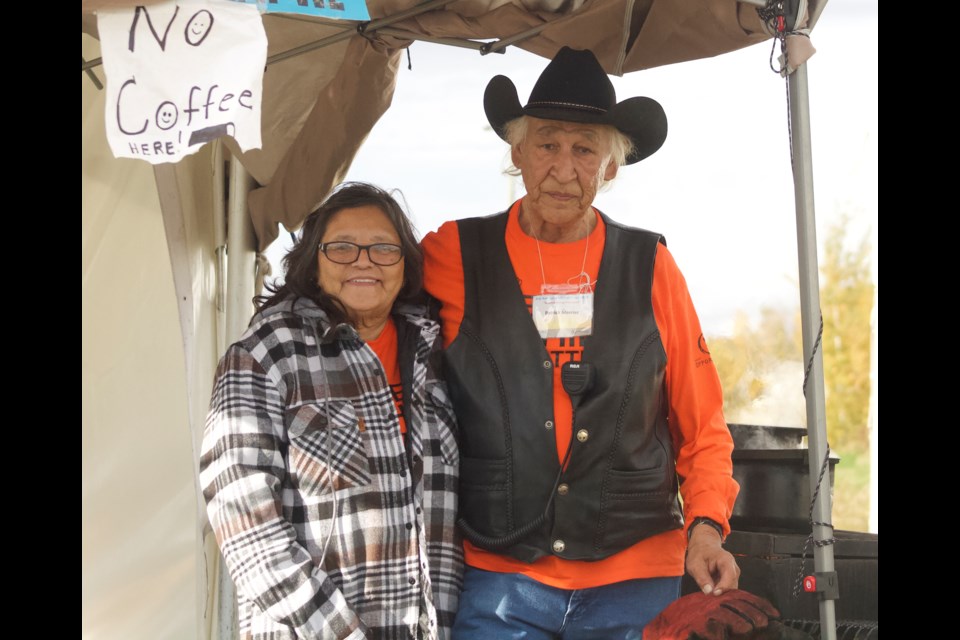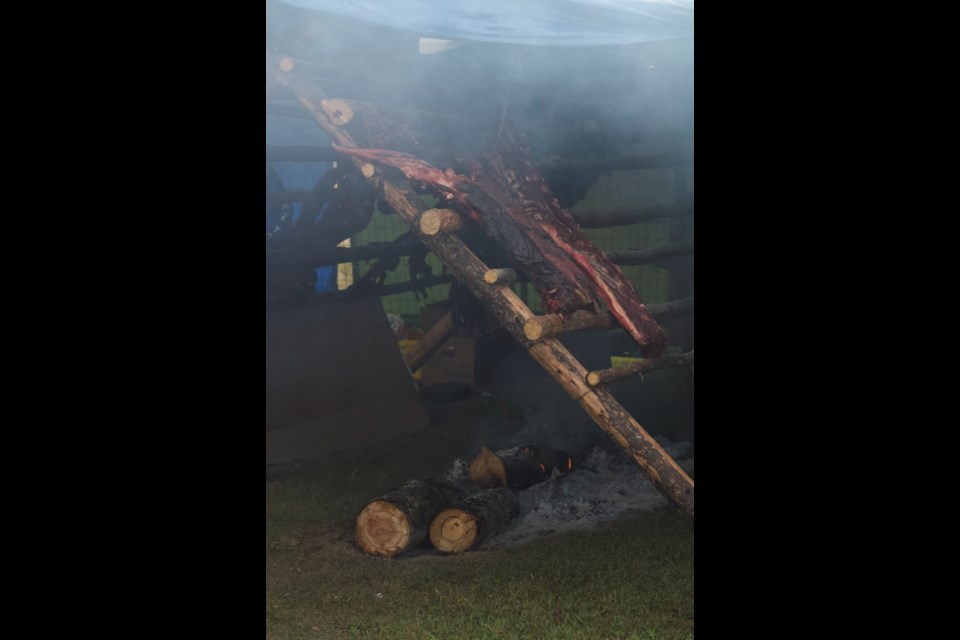WABASCA – Wabasca’s Cultural Days featured a wide range of events for passersby to enjoy — from educational sessions on bow-and-arrow construction or the Cree language, to a drum circle and traditional tea station, there was something for everyone at the seven-day long affair.
The event, which was started three years ago and is operated by the M.D. of Opportunity #17’s Family and Community Support Services (FCSS) chapter, was initially started as a mental health and suicide prevention event but has since turned into something larger.
“From the first day we ran this, people were asking if we would do it again,” said Janice Auger, who came up with the idea after seeing a grant from AHS for suicide prevention.
“Clearly, we were missing that part or component of a large community gathering. And we’ve kept planning and it kept getting bigger with more funding.”
This year’s event featured more than 28 unique events, including a trapper’s tent, art therapy, sling shot making, and a Cree language panel.
“We’re teaching people Cree words, and if they want to know a word and what it means, or how to say it, they can ask,” said Simon Beaver, who emceed the event and helps in the language tent. “As an emcee, I speak Cree and English and translate stuff so that the elders can understand. A lot of them lost their language, through residential schools or what have you.
“For the elders that do speak Cree, they love hearing their own language.”
Never too old to learn
Many stations centred around activities that were once essential learning, including fire-making, medicinal plant identification, and a variety of spaces centred around moose processing. One such station was led by Bertha Dewolfe Auger, who spent the week teaching how to properly tan a moose hide.
Dewolfe Auger started tanning hides seven years ago, after watching her elderly mother start to struggle with the process. Since then, she’s taken a cultural arts diploma at Portage College, and tans seven or eight hides a year.
“I was always working and supporting my kids, so I didn’t have time to learn until I saw my mother struggling. She’s the moose hide tanner, the one that taught me. She was 73 then,” said Dewolfe Auger as she strung the hide up over fresh coals.
“I’m glad if the youth come and they’re interested — it’s a good feeling to get to share my knowledge. I never thought I would be doing this; I was an office worker, a finance clerk.”
Other stations were more sustenance focused; a group of cooks smoked moose ribs over an open fire, while others mashed vegetables for the sides. Patrick and Maria Merrier, lifelong Wabasca-area residents, manned a station brewing traditional teas, including peppermint and chaga.
Like Dewolfe Auger, the couple learned how to brew teas from their elders.
“We’re native, so we just picked it up like that,” said Maria with a laugh.
“There’s elders that we talked to that talk to us about certain things, it’s how we pick up everything,” added Patrick.
Community support
Auger was immensely thankful for the various sponsors that made the event possible, listing each and every service that was provided by a company or through a government grant.
“If (Canadian Heritage) saw what we were doing here, I’m sure they would just say, ‘Here’s a $100,000 cheque,’” said a proud Auger.
Work on next year’s event has already started, with Auger and her partner Jorren DeCoine already in the process of finding knowledge keepers and elders to man a station or a tipi. The festival also runs right up to National Truth and Reconciliation Day, which is on the minds of many attendees.
“I lost my cultural heritage to Indian residential schools — my grandmother was a medicine woman who helped people, but because it was demonized it became taboo, even within our own people,” said Auger.
“Now we’re trying to catch up and we have decades of work to catch up on, with our Cree language especially, which is at risk of being lost.”




